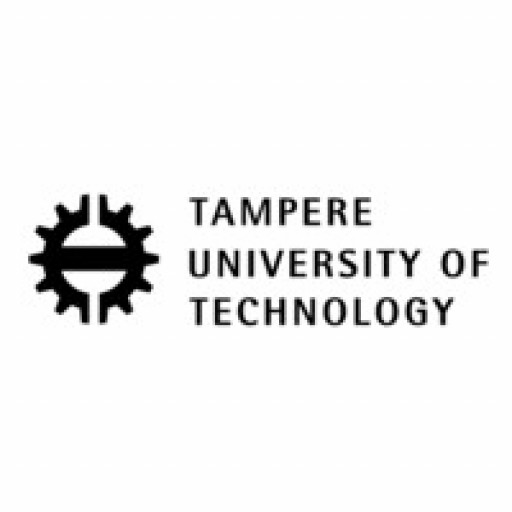Photos of university / #lifeatkings
The BSc in Medical Physics at King's College London is a comprehensive undergraduate programme designed to provide students with a solid foundation in the principles and practices of medical physics. This programme integrates core knowledge from physics, biology, and medicine to prepare graduates for a variety of roles within healthcare and medical research sectors. Throughout the course, students will explore topics such as radiation physics, medical imaging technologies, radiation safety, ultrasound, and nuclear medicine, gaining both theoretical understanding and practical skills essential for clinical applications.
The curriculum combines lectures, laboratory work, and clinical placements, offering a balanced learning experience that fosters critical thinking and problem-solving abilities. Students will learn how to operate and interpret sophisticated medical imaging and therapeutic equipment, understand the biological effects of ionising radiation, and apply safety standards vital for protecting patients and healthcare professionals. Emphasis is placed on the development of communication skills, teamwork, and ethical considerations pertinent to medical physics practice.
Graduates of this programme are well-equipped to pursue careers in hospitals, research institutions, and industry, or to continue their education through postgraduate studies. The programme also prepares students for registration with relevant professional bodies, enhancing employment prospects within the health sector. King's College London's reputation for research excellence and its state-of-the-art facilities provide an ideal environment for aspiring medical physicists to develop their expertise. Graduates leave the programme with the knowledge and skills necessary to make a meaningful contribution to patient care, medical research, and healthcare innovation.
The BSc in Medical Engineering and Physics at King’s College London offers a comprehensive curriculum that bridges the fields of engineering, physics, and medicine to prepare students for innovative contributions to healthcare technology. The programme provides an in-depth understanding of the fundamental principles of physics and engineering as they apply to medical sciences, equipping students with the skills needed to develop, evaluate, and improve medical devices and instrumentation.
Throughout the course, students explore a wide range of topics, including biomechanics, medical imaging technologies, instrumentation, signal processing, and healthcare technologies. The curriculum combines theoretical lectures with practical laboratory sessions, allowing students to gain hands-on experience in designing and testing medical devices. Students also have opportunities to undertake projects related to biomedical engineering, which foster problem-solving, innovation, and application of scientific principles to real-world medical challenges.
In addition to technical skills, the programme emphasizes the importance of understanding the biological and clinical context of engineering solutions. Students are encouraged to develop multidisciplinary teamwork and communication skills, preparing them for careers in research, clinical engineering, medical device development, or further postgraduate study.
The programme includes modules on biomedical instrumentation, biophysics, medical imaging techniques such as MRI and ultrasound, and the principles of clinical measurement and control. There is also a strong focus on the ethical, legal, and societal issues surrounding medical technology, ensuring graduates are well-rounded professionals aware of the broader implications of their work.
Students benefit from the university’s state-of-the-art laboratories and research facilities, as well as from collaborations with hospitals and industry partners. These collaborations provide valuable opportunities for internships, placements, and exposure to current industry practices.
Graduates of the Medical Engineering and Physics programme at King’s College London are well-equipped to contribute to the advancement of healthcare technology, pursue careers in medical device design and development, medical imaging, rehabilitation engineering, or undertake advanced postgraduate research. The programme’s strong interdisciplinary approach ensures students are prepared to meet the evolving demands of modern medicine and healthcare innovation.
A minimum of A-level qualifications including Chemistry and at least one from Mathematics, Physics, or Biology at grade B or above. Alternatively, a relevant BTEC Level 3 Extended Diploma with a distinction overall and a minimum of Merit in the modules corresponding to Physics and Mathematics. Applicants are also expected to have achieved a minimum of five GCSEs at grade 4 (C) or above, including English and Science. Prior experience or knowledge in related subjects such as medical technology, engineering, or physics is advantageous but not mandatory. International students must demonstrate equivalent qualifications, such as the Indian Standard XII with high scores in Physics, Chemistry, and Mathematics, or the IB diploma with a minimum of 32 points including Higher Level Physics and Math. For postgraduate entry, a relevant bachelor's degree in Engineering, Physics, or a closely related subject with good honours (typically 2:1 or equivalent) is required. Non-standard qualifications are considered on an individual basis, and relevant work experience can enhance application prospects. Applicants are encouraged to submit a personal statement outlining interest in medical engineering, relevant projects, and career aspirations. Proficiency in English language tests such as IELTS with a minimum overall score of 6.5 and no component below 6.0 is also a requirement for non-native speakers. Selection is based on academic qualifications, personal statement, and where applicable, interview performance. Additional requirements may include references and, for some schemes, a portfolio of relevant work or research activity. The program aims to ensure that students have a solid foundation in the sciences and mathematics necessary for advanced study in medical engineering and physics, as well as the motivation and aptitude to succeed in a multidisciplinary field that combines engineering principles with medical applications.
Financing studies for the Medical Engineering and Physics program at King's College London involve a range of options designed to support students academically and financially throughout their degree. Students can explore various funding sources, including government-funded loans, scholarships, bursaries, and external funding opportunities. For UK students, the UK government offers student loans which cover tuition fees and provide maintenance funding to assist with living costs. These loans typically have favorable repayment terms, commencing after graduation when earning above a certain threshold.
International students are encouraged to seek scholarships and bursaries specific to King's College London or external organizations. King's College London offers several merit-based scholarships, which are awarded based on academic excellence and other achievements. These scholarships may cover full or partial tuition fees and sometimes include living expense stipends. Additionally, students can apply for external scholarships provided by charities, professional bodies, or government agencies in their home countries or abroad.
Work opportunities during studies are also available to help finance tuition and living expenses. These include part-time jobs within the university, such as research assistantships or administrative roles, as well as opportunities for paid internships and placements related to Medical Engineering and Physics. International students should verify visa regulations regarding employment, as restrictions may apply.
Students are advised to prepare a comprehensive financial plan before commencing their studies, considering tuition costs, expected living expenses, insurance, books, and supplies. King's College London provides financial guidance and support services to assist students in applying for loans, scholarships, and budgeting effectively. It is essential for prospective students to review the specific funding options available each academic year, as these can vary according to government policies, university funding changes, and external opportunities.
Overall, financing a degree in Medical Engineering and Physics at King's College London requires proactive engagement with available funding sources and careful financial planning to ensure a smooth academic experience without undue financial burden.
The BSc in Medical Engineering and Physics at King's College London is an interdisciplinary programme designed to prepare students for careers in healthcare technology, biomedical engineering, and medical physics. This degree integrates core principles from physics, engineering, biology, and medicine to equip students with the knowledge and practical skills necessary for developing and applying medical devices, imaging systems, and diagnostic tools. The curriculum emphasizes both theoretical understanding and hands-on laboratory experience, fostering innovation in the design and implementation of medical technologies. Students will explore subjects such as medical imaging techniques like MRI and CT, biomechanics, radiobiology, bioinstrumentation, and healthcare data analysis.
Throughout the course, students gain an understanding of how physical principles underpin medical procedures and devices, enabling them to contribute to advancements in patient diagnosis, treatment, and overall healthcare delivery. The programme also includes modules on ethics, regulation, and safety in medical technology, preparing graduates for professional practice in regulated environments. Practical components, including laboratory work and project-based assessments, are integral parts of the course, providing real-world experience in designing and evaluating medical systems.
The course benefits from King's College London's extensive research facilities and strong links with healthcare industries and hospital trusts, offering students opportunities for placements, research projects, and networking with professionals in the field. Graduates of this programme are well-positioned for careers in the medical device industry, biomedical research, hospital medical physics departments, regulatory agencies, or may choose to continue their studies at postgraduate level. The programme emphasizes critical thinking, problem-solving, and communication skills, essential for effective interdisciplinary collaboration in healthcare technology. Overall, King's College London's Medical Engineering and Physics degree aims to produce versatile professionals capable of advancing medical science and improving patient care through technological innovation.








